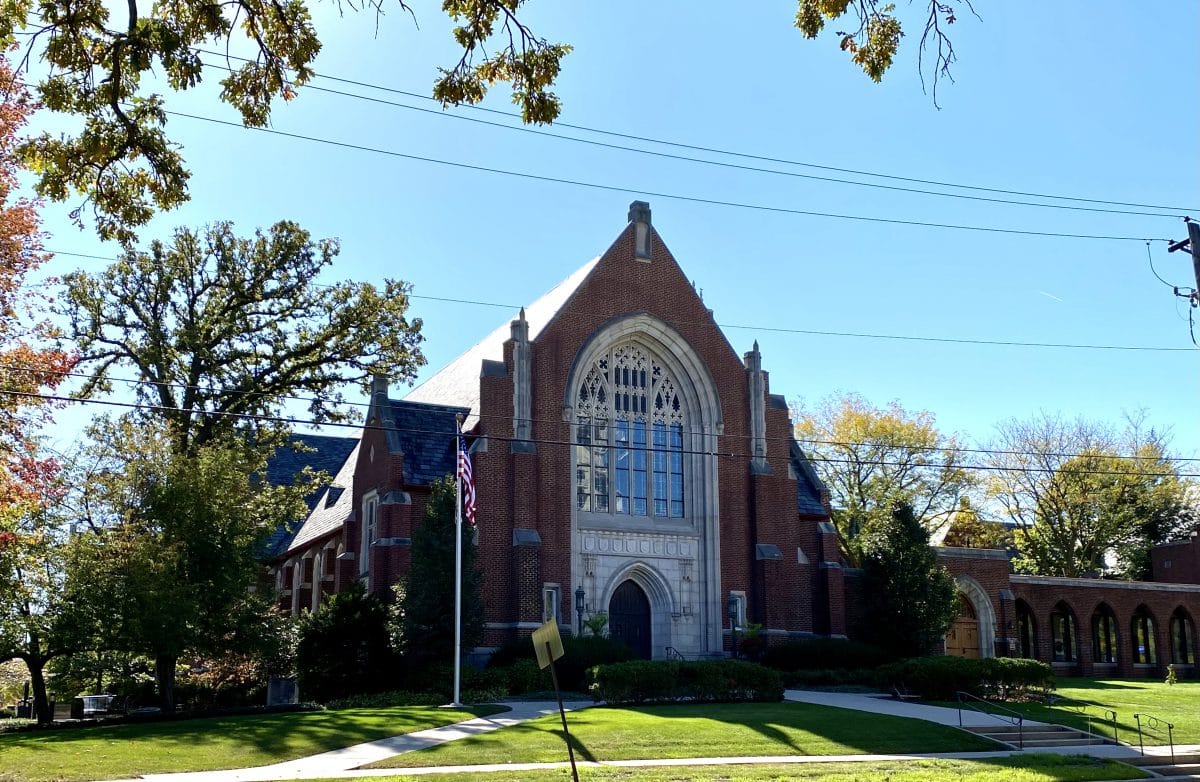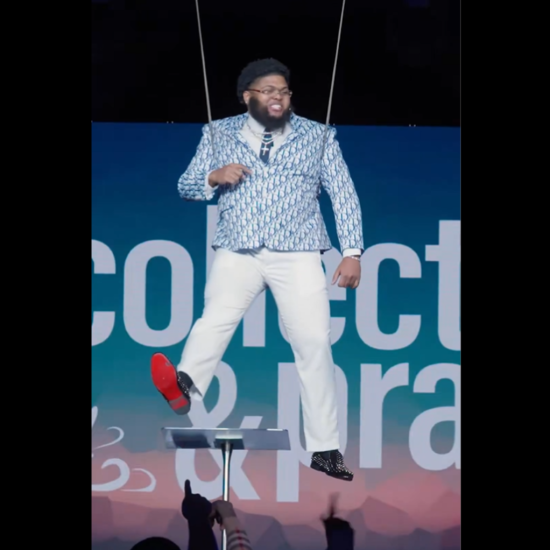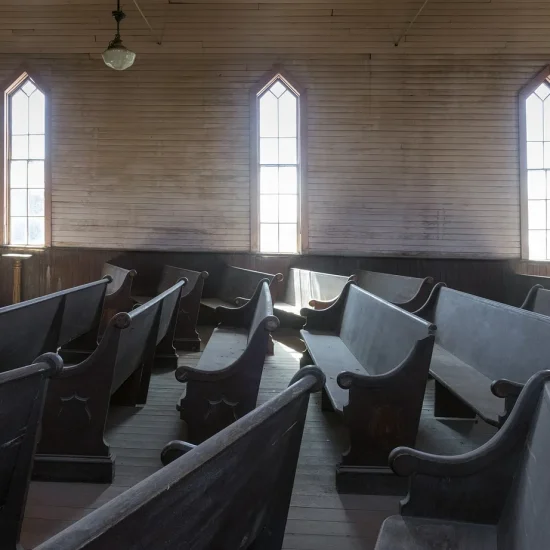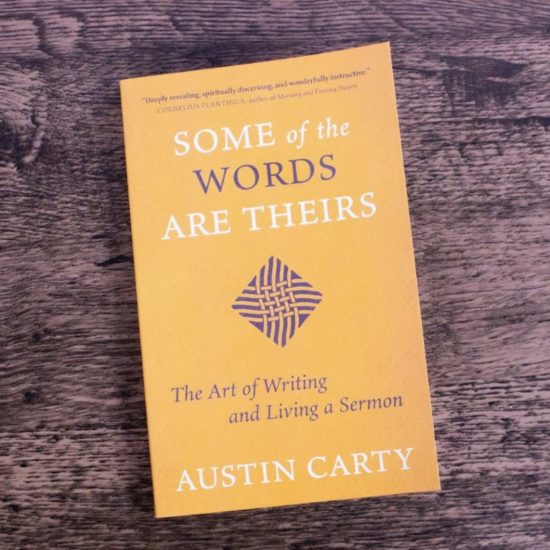
Pastors have broad job descriptions. They are preachers, teachers, counselors, administrators, organizers, and so much more. Many church members rarely interact with their pastors outside of Sunday morning worship, making it difficult to understand the dynamics of this role. “Behind the Pulpit” is a regular feature intended to pull back the curtain on the minister’s life and introduce our readers to how a diverse set of leaders go about shepherding their flocks.

Lindsey Braun
This installment features an interview conducted by email with Lindsey Braun, pastor of education and faith formation at Plymouth Church in Des Moines, Iowa. Her responses have been lightly edited for clarity.
What didn’t you learn in seminary that you needed to know for church leadership?
Sooooo much! I’m grateful for all I did learn. AND seminary could have lasted 10 years and still not given me all the tools I’ve needed for church leadership. How to remove a bat from the sanctuary, alive or dead. Systems administration. Adaptive leadership. Strategies for faithful development (of financial resources). Strategies for development of faith (in a generation when the old models of faith formation aren’t working anymore). How to livestream from your phone during a pandemic without the picture going sideways.
How has your personal understanding of God changed by serving the local church?
For me, the local church is the context in which my understanding of God has become like the universe: ever-expanding. If I really believe what I preach – that God’s image can be found in every person and that each member of my church is a beloved child of God – then how do I understand one person’s actions or another’s personality traits (so very different from my own) to reveal something of God? Sometimes the answer to that question is obvious, other times it is a much bigger challenge. But always, it expands my understanding of the One who created us all and whose love is woven through us all.
How have your personal religious/devotional practices been shaped and altered by being the shepherd of a flock?
In the early days of my ministry, my prayer life became much more personal and rigorous than it had ever been before. There were so many vulnerable moments in peoples’ lives that I was invited into that were challenging and outside anyone’s control. I didn’t always know what to do or say. In addition to this, as an empath, I could feel the feelings of the people I was shepherding and needed to not be overwhelmed by them. So whether at lunch or while driving to make a visit or preparing a sermon, I would invoke God’s presence in an intimate and personal way. “Help me, God.” “Establish the work of my hands.” “Give me the words they need.” “Let my presence be a vessel of blessing.” After more than a decade in ministry, those prayers are less frantic and less desperate. I’ve experienced God’s faithfulness and trust God to be present – sometimes through me, sometimes in spite of me. Those rhythms of prayer ground me in that presence and trust.
What does justice look like in your local context? How about love? How do you lead people towards both?
When I teach my confirmation class about the Christian practice of Justice, I quote Cornel West: “Justice is what love looks like in public.” It’s important not to separate them. Without love, justice can start to look like retribution. Without justice, love can fail to be accountable. Because we’re situated in a decent-sized metro area, we face a lot of the same love and justice issues that affect other parts of the country to greater or lesser degrees: food insecurity, affordable housing shortages, racial profiling, mental health crises, immigration, inadequate childcare. One of the best things our church has done in pursuit of loving justice is to be an active member of our local IAF affiliate. AMOS (A Mid-Iowa Organizing Strategy) helps us gather with our neighbors to hear each others’ stories, learn from each other where life is brittle and could be better, prioritize, organize, and build power together in pursuit of real solutions for our community.
What’s the funniest or oddest thing that’s ever happened to you in ministry (that you can share without breaking confidentiality)?
On my first Ash Wednesday as a solo pastor, I heard screams coming from the sanctuary about 20 minutes before the service. I came in hot, thinking I needed to shush the confirmation class, only to find the Elders ducking and dodging a swooping bat. (My note about bat removal was not theoretical!) It finally came to a rest at the very peak of the tallest stained glass window in the front of the sanctuary. And stayed there. As we started the service, I told the congregation that I had been prepared to invite everyone forward to the front of the sanctuary so that our small but mighty gathering would be bolstered by closeness. I told them that I’d changed my plan and instead, they should stay right where they were seated and I would lead the service from the middle of the center aisle. My only ask was that they give me a heads up if the bat was on the move! We shared a good laugh, the bat stayed put, and it was a holy Ash Wednesday in community.
How do you see the pandemic altering the life of your congregation? What changes are permanent and which are fleeting?
The pandemic has created what a friend and colleague calls “the great reshuffling.” People have had a chance to dip their toes into other communities all over the country via online services. They are opting into faith communities that align more fully with their beliefs. We, like every other congregation, have lost some members this way and gained others. There’s a lot of uncertainty that’s been created by this. But there are a few things we know for sure. We will never not stream services online. This is a change that’s here to stay. We’re a big enough church that we were heading in that direction pre-pandemic, but it has become essential to the life of our community. I hope and pray that we will get back to a time when more people feel comfortable gathering in large groups. But/and we have had great success preparing take-home kits and giving people the tools they need to practice their faith at home. I hope the learning and growth that has happened in these at-home practices continue. People have had to learn that church is more than the building. Time will tell if this continues.
If you could help the average person in your congregation understand one (and only one) thing better about the faith they profess, what would it be?
I now serve a community that includes a lot of high-level professionals. They are used to being productive, effective, and excellent. They value these qualities in themselves and in the organizations they serve. If I could convince the average person, not just on an intellectual level but on a soul level, that their value in God’s eyes has no connection to their productivity, effectiveness, or excellence, that their value in God’s eyes is inherent and doesn’t need to be earned. That would be a good day in ministry.






